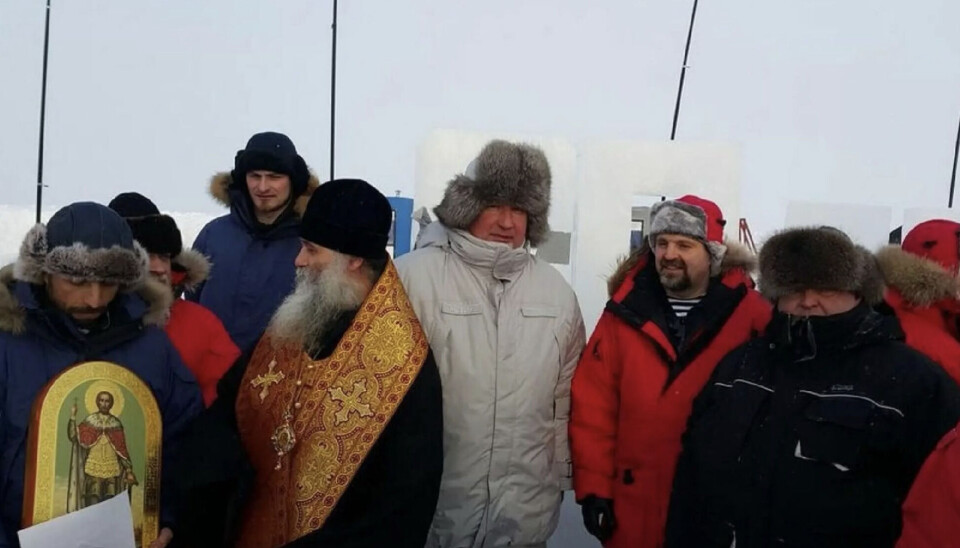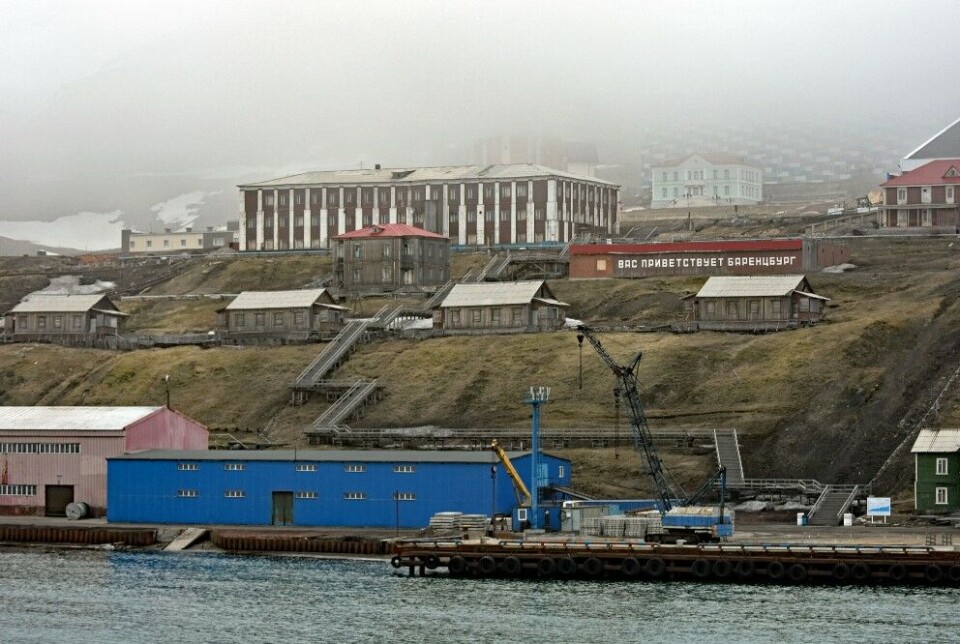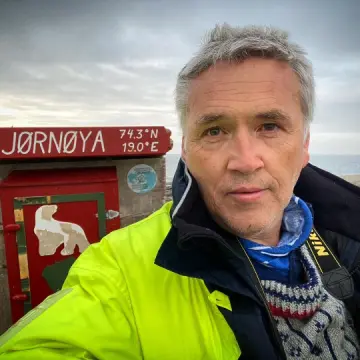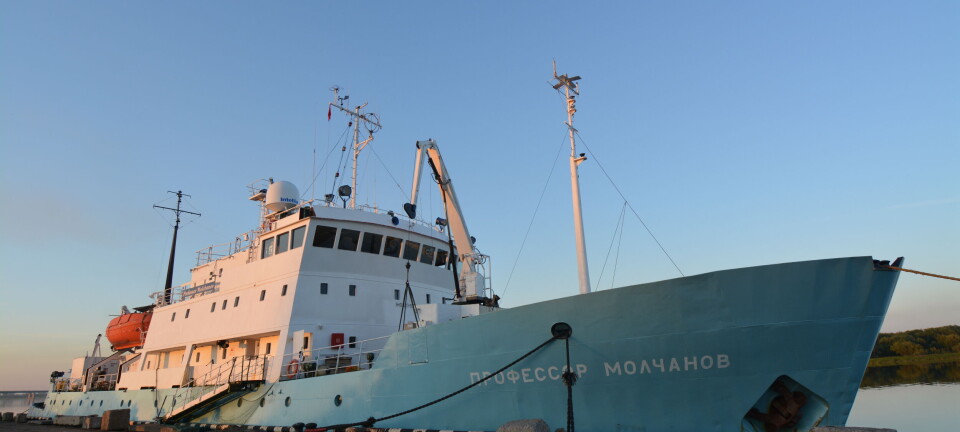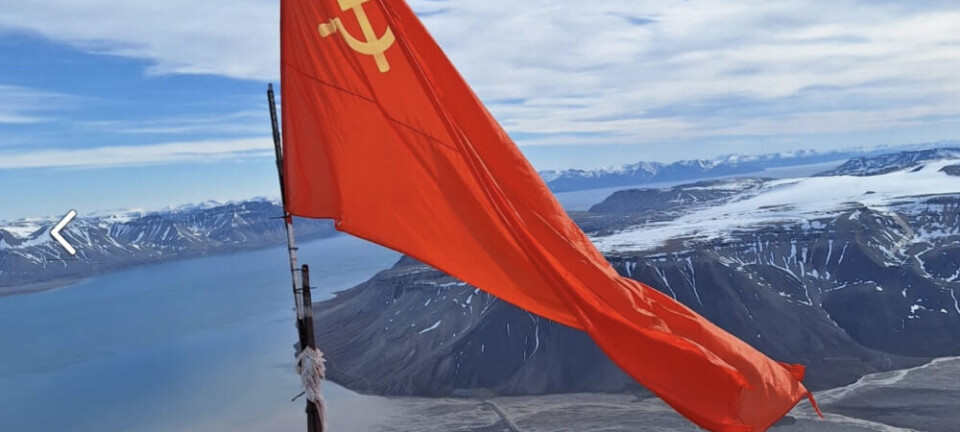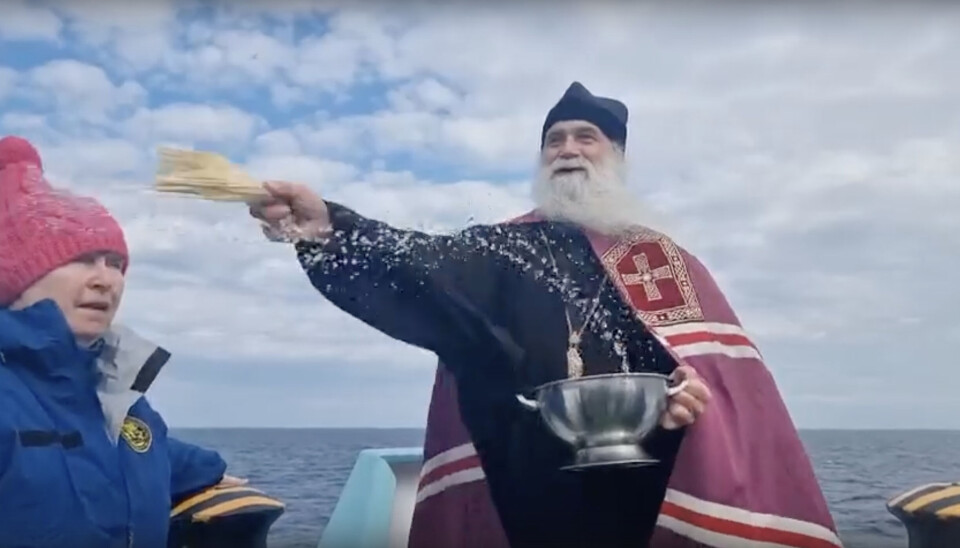
Putin’s trouble-making bishop sails to Svalbard as Norway’s King Harald V docks in Longyearbyen
A former bishop known for promoting Russian territorial claims in the Arctic will arrive to Svalbard on Tuesday. He has previously traveled across the Russian Arctic with top military figures.
Bishop Iyakov belongs to the inner circle of high prelates who support Vladimir Putin's war against Ukraine. He has previously assisted former deputy prime minister Dmitri Rogozhin to Svalbard, a move that sparked controversy as Rogozhin at the time was on EU and Norway's list of sanctioned Russians banned from entry.
Two years ago, the controversial bishop raised a giant Russian orthodox cross in Pyramiden at Svalbard without Norwegian permission. The 7 meter high cross was decorated with St. Georg's Ribbon, a well-known Russian symbol of military valor and patriotism.
The bishop (vladika) then blessed the former Soviet coal mining town as "Russian" in a well-planned ceremony.
The Kremlin is using the Orthodox Church as a spiritual weapon to create a narrative that the Arctic belongs to Moscow.
Bishop Iyakov is Monday again on his way across the Barents Sea towards Svalbard, according to Arktikugol, the Russian state-owned company running all Moscow's businesses at Svalbard.
This happens simultaneously as Norway's King Harald V and Queen Sonja visit the archipelago.
At the age of 88, the King's visit comes with a strong symbolic message: Norway's sovereignty of Svalbard stands solid.
Their Majesties The King and Queen sailed north with the Royal Yacht Norge and made a landing at the Bear Island on Friday. On Monday, the yacht docks at Longyearbyen, the main Norwegian settlement at Svalbard.
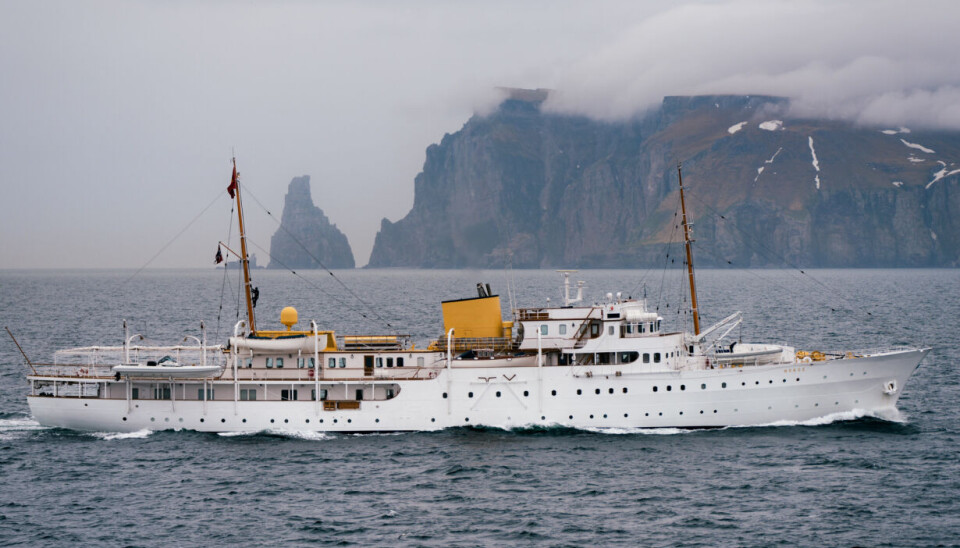
Bishop Iyakov is onboard the Professor Molchanov, a Russian ice-strengthened oceanographic research vessel that this summer for the first time sails passenger tours directly from Murmansk to Svalbard.
Scheduled arrival in Barentsburg, the Moscow's mining settlement on the archipelago, is Tuesday June 17th, Arktikugol writes on Vkontakte. Russia's Ambassador to Oslo, Nikolai Korchunov, is also set to visit Svalbard.
Until now, all Russian citizens heading to Svalbard had to fly in via Tromsø or Oslo airports. To do so, they need a valid Schengen visa and go through Norwegian passport control. As Norway stopped issuing tourist visas to Russians, only those affiliated with Arktikugol were given visas to transit via the mainland.
The Barents Observer earlier this spring called bishop Iyakov and asked him if he has applied for a Norwegian visa to get to Svalbard this summer. The bishop was unwilling to confirm.
"What kind of police question is this," was Iyakov's short comment before he hung up the phone. Follow up questions sent via Telegram are read but remain unanswered.
Norway's Foreign Ministry in Oslo says in an email that it is for the Directorate of Immigration (UDI) to answer questions on Russian citizens' visa applications. The Directorate, though, says to the Barents Observer that questions about visa-applications are confidential personal information.
By sailing directly from Murmansk, and not traveling via mainland Norway, the bishop does not need a Schengen visa as all citizens of signatory countries to the Svalbard Treaty have free access to the archipelago.
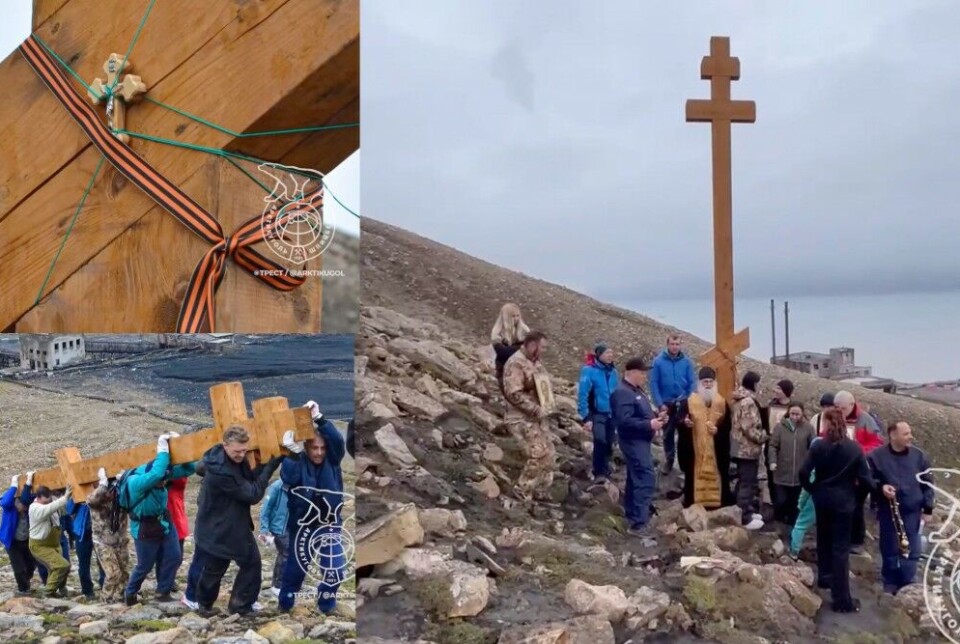
Russia’s Orthodox Church is closely connected with both the Kremlin and the military forces and bishop Iyakov plays an important geopolitical role in the Arctic.
Shortly after he erected the cross at Svalbard, bishop Iyakov travelled to the military base at Franz Josef Land and erected a similar cross. For him, the Arctic is the mission in Russia's neo-imperialism.
Iyakov was until March 2025 head of the diocese in Naryan-Mar (Nenets Autonomous Okrug). Here, he used his position to recruit young indigenous peoples' to sign contract with the ministry of war. In 2022 he was blessing a group of young men shortly after Putin’s partial mobilization sent them off to the slaughter fields in Ukraine, local news online NAO 24 reported.
Although now officially retired, Iyakov continues to represent the church. His work now is decided by patriarch Kirill.
In a longer interview on the site of the Russian Orthodox Church, Iyakov tells about his work in the Arctic, including the churches at the military closed bases at Novaya Zemlya and Aleksandra Island, part of Franz Josef Land. Photos from his travel with FSB Coast Guard to the remotest corners of the Northern Sea Route are made available at the Church of Naryan-Mar’s portal.
In 2024, he launched construction of a church at Novaya Zemlya, the nuclear test field in the Russian Arctic.
In 2012, Iyakov joined a nuclear-powered icebreaker to the top of the world where he dropped a capsual with a blessing from Patriarch Kirill on the North Pole point.
The year after, he again went to the North Pole, this time on plane via Longyearbyen into Russia’s ice-base Barneo in the high Arctic. Upon return, he made a stopover at Nagurskoye, the military base at Franz Josef Land. Together with him was Nikolai Patruchev, the former FSB director that from 2008 until 2024 served as Secretary of Putin’s Security Council. The two placed a commemorative plaque on the wall of the new church. Patruchev and Ilyakov fasten one screw each.
Bishop Iyakov then made clear that the Arctic is an integral part of holy Russia:
“The well-known saying ‘The borders of the Motherland are sacred and inviolable!’ has now acquired the power of divine blessing. The borders of the Motherland are sacred, and therefore inviolable. Russia’s national interests in the Arctic require reliable state protection, and the spiritual presence of the Orthodox Church here is also extremely important, because the Arctic is and integral part of our Holy Russia,” the Bishop said.
In 2015, Iyakov was in centre of events as then Russia's deputy prime minister Dmitri Rogozhin suddenly came to Longyearbyen and Barentsburg. Rogozhin was then on the European Union and Norway's sanctions list of Russians not wanted.
